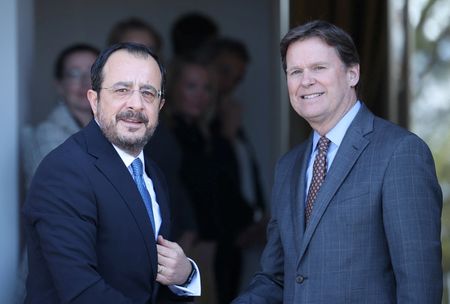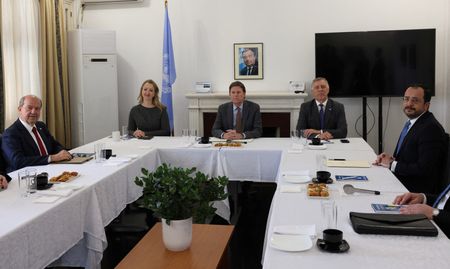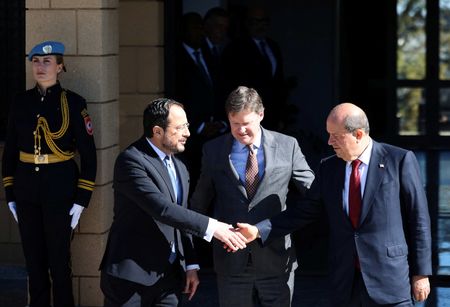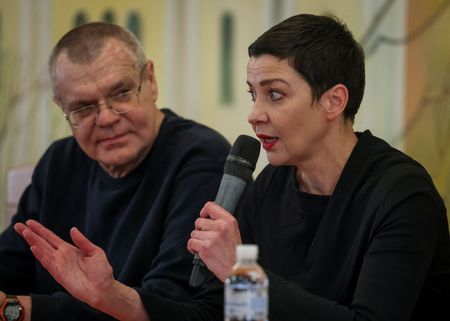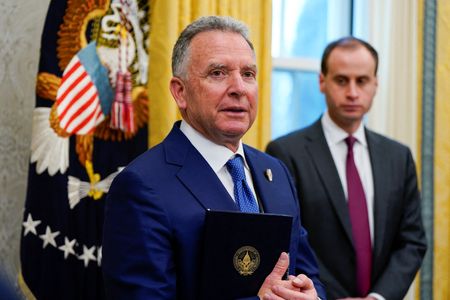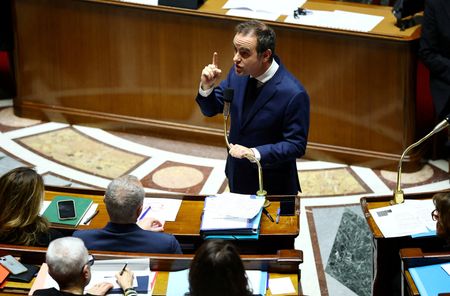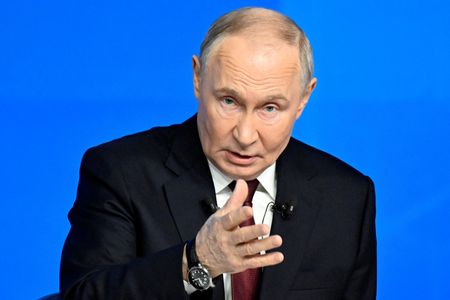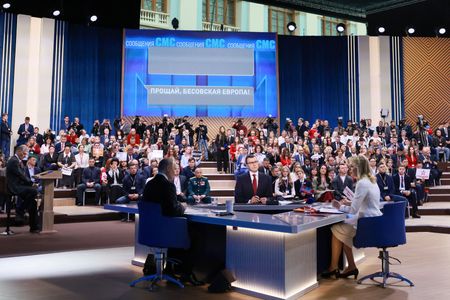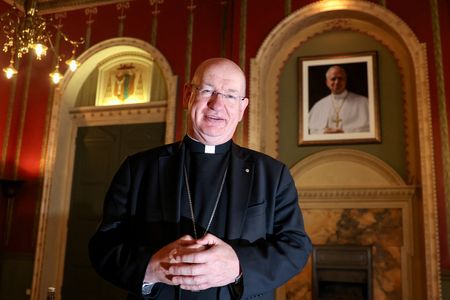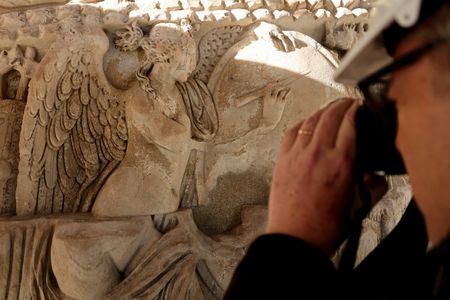NICOSIA (Reuters) -Leaders of war-divided Cyprus said on Monday they supported opening further crossing points along the 1974 ceasefire line splitting the island to meet popular demand, and would work with the United Nations towards that objective.
President Nikos Christodoulides, the Greek Cypriot leader, and Turkish Cypriot leader Ersin Tatar discussed the modalities of new checkpoints at a rare meeting hosted by the United Nations in the divided capital Nicosia.
But they stopped short of announcing additional easings in movement over the truce line that runs along a roughly east-west trajectory on the eastern Mediterranean island, underscoring that disagreements persisted.
“The leaders both believe that the opening of new crossing points is critical to promote people-to-people contacts, strengthen economic ties, and build trust,” a statement released by the U.N.
on behalf of both leaders said.
It said another meeting would follow in the coming days.
In later comments, Christodoulides said: “We will meet when Mr Tatar is ready.”
He said he had prepared an eight-point confidence-building plan which, in addition to new checkpoints, also included the establishment of a truth commission to deal with past violence.
Monday’s meeting followed months of negotiations by aides focused on where and how many checkpoints should open in addition to the nine crossings used by thousands daily along a 180-km (116-mile) ceasefire line.
It is estimated more than a million people use the checkpoints to cross each year either for employment, education or personal reasons; bonds have tightened since the first pedestrian crossing was opened in April 2003 after almost three decades of isolation.
Greek and Turkish Cypriot parties have repeatedly urged the political leadership to seal a deal, and civilians added their own call on Friday, a typically busy day where traversing a few metres of boundary can take up to an hour.
“People want to be on both sides, and there is nothing they can do to stop us,” said Androulla Shati, a peace activist.
Cyprus was partitioned after a Turkish invasion in 1974, triggered by a coup attempt on the island sponsored by Greece’s then-ruling military junta after years of inter-communal violence.
Peace talks collapsed in mid-2017.
(Reporting by Michele Kambas; editing by Mark Heinrich and Ros Russell)


